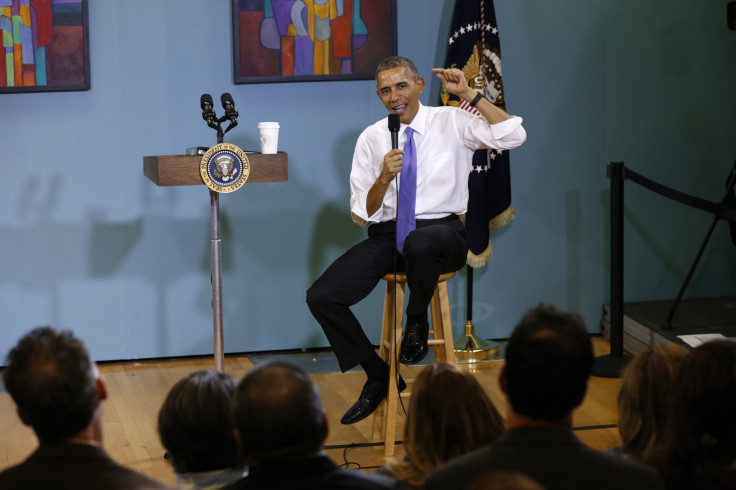Illegal Immigration 2015: How ‘Sanctuary Cities’ In US Support Immigrants Awaiting Stalled Obama Policy

As things remain on hold for undocumented immigrants awaiting federal level relief from deportation, a number of local leaders in U.S. cities have renewed their efforts to foster welcoming and inclusive communities for undocumented immigrants. So-called “sanctuary policies,” many of them adopted long before President Barack Obama’s executive actions that temporarily shield some immigrants from deportation and grant work permits, are intended to signal to the undocumented community that it’s safe to come out of the shadows without the fear of being reported to federal authorities.
Earlier this week, many undocumented immigrants who hoped to apply for the immigration relief program learned that a federal judge temporarily blocked its implementation until a lawsuit brought by leaders opposing Obama’s executive action is resolved. Even as 26 state governors claim the program will harm their state by straining local resources, some Democratic city mayors and law enforcement officials said there is more to gain by extending a hand to the undocumented community.
“We cannot turn a blind eye to undocumented immigrants,” Mayor Wilda Diaz of Perth Amboy, New Jersey, who is also president of the state Urban Mayors Association, said Wednesday. “Let’s embrace them. Let’s work with them. If they do well, our communities will actually thrive.” On Tuesday, a mayor of New Jersey’s largest city had a similar message: “We’re a free zone over here in Newark,” said Mayor Ras Baraka. “We’re going to move forward with our plans to try to bring our undocumented community into safety here”
While some U.S. cities shy away from the politically controversial label “sanctuary city," some of the nation’s largest cities, including San Francisco, New York, Atlanta and Nashville, have measures that embrace the term. Some of those measures include directing law enforcement not to question the immigration status of residents and offering municipal identification cards and drivers licenses to residents regardless of their status.
Last December, Democratic mayors in two dozen municipalities launched an effort aimed at helping undocumented immigrants seek temporary status and obtain some legal rights. In 2013, the Orleans Parish Sheriff’s Office in Louisiana announced it would decline federal immigration detention requests except when an individual is held on felony charges for violent crimes. The policy change was prompted by a New Orleans council member’s resolution to end the holds, citing their strain on local law enforcement resources, according to a council spokesman. In all, there were more than 30 cities with "sanctuary city" designation in 2009, according to a study of sanctuary cities by Congressional Research Service.
Supporters of such policies say there are higher municipal priorities, and that deterring the presence of undocumented immigrants is more disruptive in administering municipal services and interferes with local law enforcement, according to the CRS study. Conversely, a study of undocumented immigrants and resources in New York City published by the Federation for American Immigration Reform found that the city was spending $5.1 billion annually on helping illegal immigrants. “We are sacrificing the financial security of American citizens” with sanctuary policies, said Ira Mehlman, a spokesman for FAIR, an anti-illegal immigration group.
Some law enforcement officials say fostering welcoming environments for undocumented immigrant is an issue of safety and human rights. “No one wants to call law enforcement when they are in trouble if they think they are going to be harmed by that,” Lupe Valdez, the sheriff of Dallas County, Texas, said to reporters on a conference call on Wednesday. Valdez said one of the biggest victories for local laws enforcement agencies is when they’ve established trust within the undocumented community. “Having to push people back in the shadows is going to damage this,” she said of the possible impact of the Texas federal judge ruling on Obama’s executive actions.
Monica Fuente, who coordinates Atlanta Mayor Kasim Reed’s “Welcoming Atlanta” effort, a campaign that integrates the city’s immigrants and refugees with public and private entities that serve the area, said the program drives home the message that undocumented immigrants are not outcasts. “We welcome you, step forward,” Fuente said. “It’s a no brainer. The folks are already there in our communities.”
© Copyright IBTimes 2025. All rights reserved.






















